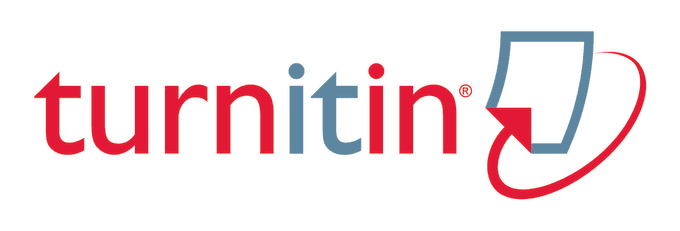Analisis Implementasi Gaya Kepemimpinan Pada Path-Goal Theory Melalui Program Management Trainee Biznet Networks
DOI:
https://doi.org/10.37535/103004120235%20Abstract
Penelitian ini bertujuan untuk menganalisis penerapan Path-Goal Theory dalam Program Management Trainee di Biznet, dengan fokus pada interaksi antara Manager Trainer, Trainer, dan Trainee. Kajian dilakukan dengan paradigma konstruktivis, dengan menggunakan metode studi kasus yang dikembangkan oleh Robert K. Yin. Metode pengumpulan data meliputi wawancara mendalam dan Focus Group Discussion (FGD) untuk mengumpulkan data primer dan dokumentasi (data sekunder). Wawancara mendalam dan FGD melibatkan 13 peserta, termasuk pengelola pelatihan, anggota tim pelatihan, dan peserta pelatihan. Penelitian ini menunjukkan bahwa tidak semua gaya komunikasi kepemimpinan diterapkan secara efektif dalam program MT. Dalam program MT, manajer cenderung menggunakan komunikasi direktif dalam berbagai situasi interaksi komunikasi. Gaya komunikasi kepemimpinan yang cenderung direktif ini kurang mempertimbangkan locus of control di antara bawahan, terutama para peserta pelatihan. Manajer menggunakan komunikasi direktif dengan bawahan dengan lokus kontrol internal, sedangkan bagi mereka dengan lokus kontrol eksternal, komunikasi kepemimpinan cenderung bersifat diktator, menghakimi, diskriminatif, dan sebagainya.
Kata kunci: Management Training; Path Goal Theory; Biznet; Kepemimpinan; Komunikasi Kepemimpinan
References
Almatrooshi, B., Singh, S., & Farouk, S. (2016). Determinants of organizational performance: a proposed framework. International Journal of Productivity and Performance Management, 65(6), 844-859. https://doi.org/10.1108/IJPPM-02-2016-0038.
Al-Sada, M., Al-Esmael, B., & Faisal, M. (2017). Influence of organizational culture and leadership style on employee satisfaction, commitment and motivation in the educational sector in Qatar. EuroMed Journal of Business,12(2), 163-188.
Azizah, S. N. (2021). Gaya Kepemimpinan Path Goal Theory dan Produktivitas Pamong Desa. Jurnal E-Bis, 5(1), 100-114. https://doi.org/10.37339/e-bis.v5i1.460.
Buengeler, C., Homan, A. C., & Voelpel, S. C. (2016). The challenge of being a young manager: The effects of contingent reward and participative leadership on team‐level turnover depend on leader age. Journal of Organizational Behavior, 37(8), 1224-1245. https://doi.org/10.1002/job.2101.
Chang, C. L.-h., & Lin, T.-C. (2015). The role of organizational culture in the knowledge management process. Journal of Knowledge Management, 19(3), 433-455. https://doi.org/10.1108/JKM-08-2014-0353.
Chiang, J. T.-J., Chen, X.-P., Liu, H., Akutsu, S., & Wang, Z. (2021). We have emotions but can’t show them! Authoritarian leadership, emotion suppression climate, and team performance. Human Relations, 74(7), 1082–1111. https://doi.org/10.1177/0018726720908649.
Darmawan, D., & Mauliddia, R. (2017). Proses Pelaksanaan Management Trainee (MT) pada PT. Trakindo Utama Jakarta. Jurnal Lentera Bisnis, 2(1), 38-49.
Harrison, H., Birks, M., Franklin, R., & Mills, J. (2017). Case Study Research: Foundations and Methodological Orientations. Forum Qualitative Sozialforschung, 18(1).
Hunter, W. C., Chung, N., Gretzel, U., & Koo, C. (2015). Constructivist research in smart tourism. Asia Pacific Journal of Information Systems, 25(1), 105-120.
Koohang, A., Paliszkiewicz, J., & Goluchowski, J. (2017). The impact of leadership on trust, knowledge management, and organizational performance: A research model. Industrial Management & Data Systems, 117(3), 521-537. https://doi.org/10.1108/IMDS-02-2016-0072.
Li, G., Liu, H., & Luo, Y. (2018). Directive versus participative leadership: Dispositional antecedents and team consequences. Journal of Occupational and Organizational Psychology, 91(3), 645-664.
Long, C. S., Yusof, W. M., Kowang, T. O., & Heng, L. H. (2014). The Impact of Transformational Leadership Style on Job Satisfaction. World Applied Sciences Journal, 29(1), 117-124.
Nel, P. (2014). The Impact of Participative and Directive Leadership on Organisational Culture: An Organisational Development Perspective. Mediterranean Journal of Social Sciences, 5(23), 1970-1985.
Nikpour, A. (2017). The Impact of Organizational Culture on Organizational Performance: The Mediating Role of Employee’s Organizational Commitment. International Journal of Organizational Leadership, 6, 65-72.
Northouse, P. G. (2021). Leadership: Theory and practice. Sage publications
Putranti, R. D. (2016). Pengembangan Model Kepemimpinan Path Goal Pada Supervisor Garment Dalam Mengelola Turnover Intention Di Kecamatan Klari Kabupaten Karawang. Media Ekonomi dan Manajemen, 31(1).
Ramadanty, S., & Martinus, H. (2016). Organizational Communication: Communication and Motivation in The Workplace. Humaniora, 7(1), 77-86. https://doi.org/10.21512/humaniora.v7i1.3490.
Sembiring, J. H., & Prasetio, A. P. (2018). Pengaruh Kompensasi Terhadap Motivasi Kerja Karyawan di Biznet Networks. Jurnal Mitra Manajemen, 2(4), 263-272. https://doi.org/10.52160/ejmm.v2i4.100.
Smith, W. K. (2014). Dynamic Decision Making: A Model of Senior Leaders Managing Strategic Paradoxes. Academy of Management Journal, 57(6), 1592-1623. https://doi.org/10.5465/amj.2011.0932.
Wang, H., Demerouti, E., & Bakker, A. B. (2016). A review of job-crafting research: The role of leader behaviors in cultivating successful job crafters. In S. K. Parker, & U. K. Bindl, Proactivity at Work (pp. 95-122). New York: Routledge.
Widya, W., Arwin, A., Yuliana, Y., Ciamas, E. S., & Siahaan, R. F. B. (2021, November). Analisis Motivasi Karyawan di PT Citra Kesawan Selaras Medan. In Seminar Nasional Sains Dan Teknologi Informasi (SENSASI) (Vol. 3, No. 1, pp. 491-495).
Yin, Robert K.. 2014. Case Study Research Design And Methods (5th edition). London: Dage Publication.
Downloads
Published
Issue
Section
License
Copyright (c) 2023 Taufan Teguh Akbari, Desi Wahyuni

This work is licensed under a Creative Commons Attribution 4.0 International License.
Copyright rules apply for the articles that are featured in COMMENTATE: Journal of Communication Management
- COMMENTATE: Journal of Communication Management holds the right to be the first to publish the article.
- Authors will still be the copyright holder for their articles published on COMMENTATE: Journal of Communication Management and can use it freely as long as it does not violate the rules.
- Papers featured on COMMENTATE: Journal of Communication Management are under the Creative Commons Attribution 4.0 International License. Further details can be access on Open Access Policy.








